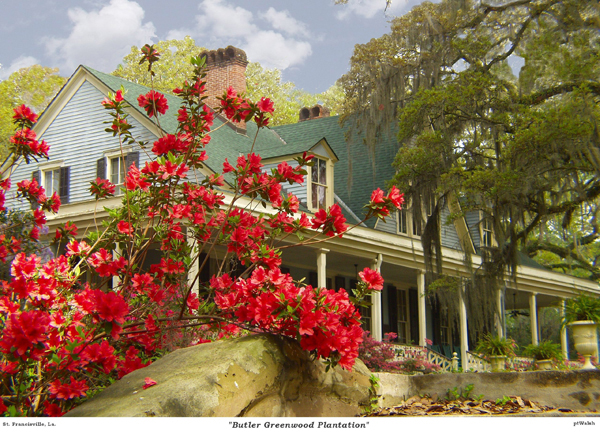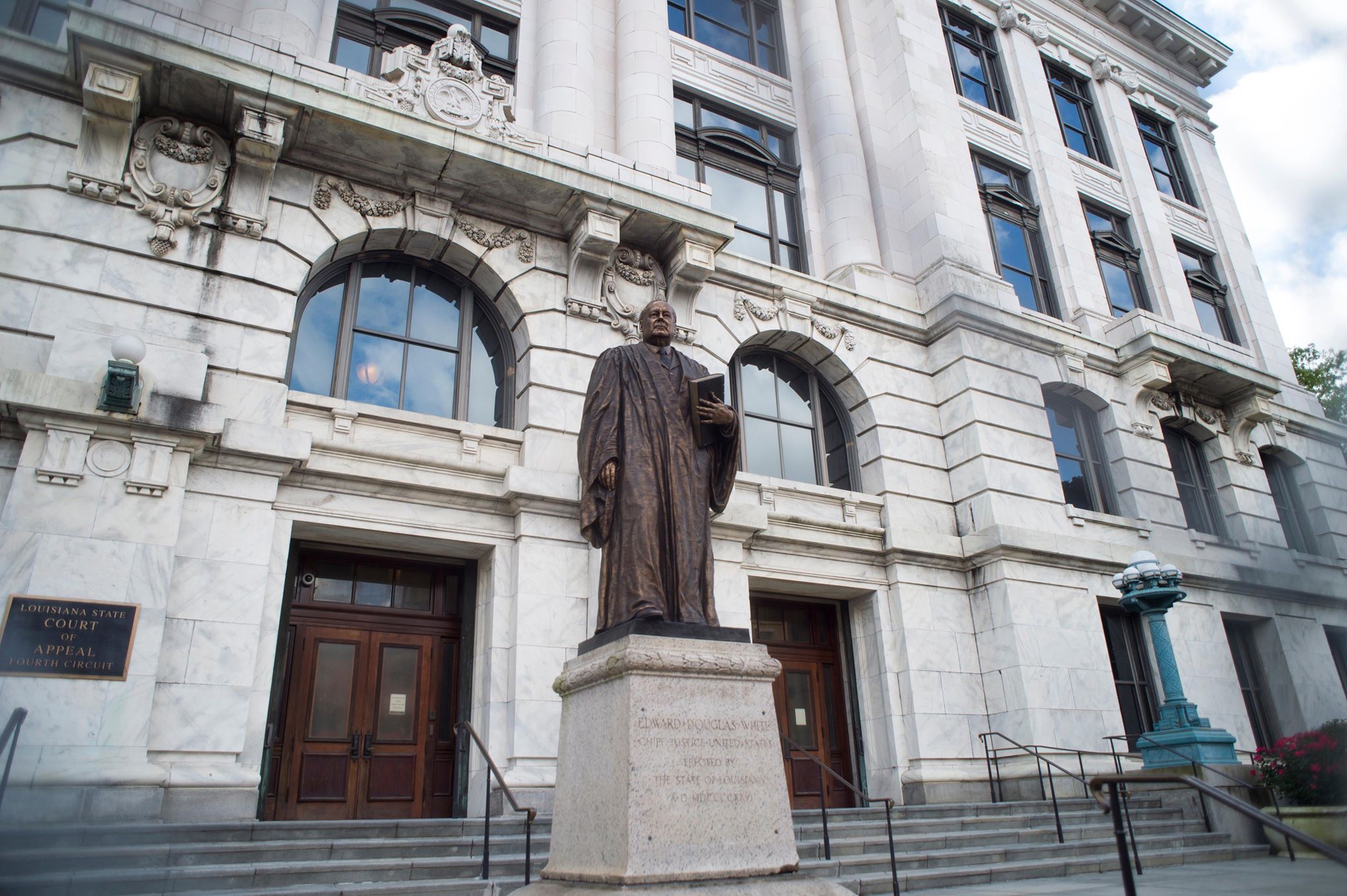|
George Mathews (judge)
George Mathews Jr. (September 30, 1774 – November 14, 1836), was a Judge of the Superior Courts of the Territory of Mississippi and the Territory of Orleans, and Presiding Judge of the Louisiana Supreme Court from 1813 until his death in 1836. His ruling in ''Marie Louise v. Marot'' was cited as precedent by dissenting U.S. Supreme Court Justice John McLean in the 1856 Landmark decisions in the United States, landmark ''Dred Scott v. Sandford'' case. Early life Mathews was born in Augusta County, Virginia, on September 30, 1774, the son of a planter and American Revolution, Revolutionary War officer, George Mathews (Georgia), George Mathews and his wife, Polly. The elder Mathews would later serve twice as Governor of Georgia. In 1785, the elder Mathews moved himself and his whole family to Wilkes County, Georgia, to land that today is in Oglethorpe County, Georgia, Oglethorpe County. Mathews returned to Virginia for his education at Liberty Hall Academy (which later became Wa ... [...More Info...] [...Related Items...] OR: [Wikipedia] [Google] [Baidu] |
Louisiana Supreme Court
The Supreme Court of Louisiana (french: Cour suprême de Louisiane) is the highest court and court of last resort in the U.S. state of Louisiana. The modern Supreme Court, composed of seven justices, meets in the French Quarter of New Orleans. The Supreme Court, and Louisiana state law, are historically based in the colonial governments of France and Spain during the 18th century. The current Supreme Court traces its roots back to these beginnings. French and Spanish colonial government Under the colonial governments of France and Spain, the courts of what is now Louisiana existed in several different forms. In 1712, a charter granted by France created a Superior Council with executive and judicial function which functioned as a court of last resort in both civil and criminal cases. In 1769, Louisiana (New France) became Louisiana (New Spain), and the Superior Council was replaced with the '' Cabildo''. The colonial Governor held the power of final authority in legal cases. ... [...More Info...] [...Related Items...] OR: [Wikipedia] [Google] [Baidu] |
Wilkes County, Georgia
Wilkes County is a county located in the east central portion of the U.S. state of Georgia. As of the 2010 census, the population was 10,593. The county seat is the city of Washington. Referred to as "Washington-Wilkes", the county seat and county are commonly treated as a single entity by locals, including the area's historical society and the Chamber of Commerce. It is part of the Central Savannah River Area (CSRA). History Wilkes County, named for British politician and supporter of American independence, John Wilkes, is considered Georgia's first county established by European Americans; it was the first of eight original counties created in the first state constitution on February 5, 1777. The other seven counties were organized from existing colonial parishes. Wilkes was unique in being made up of land ceded in 1773 by the indigenous Creek and Cherokee Native American nations in their respective Treaties of Augusta. Its location was unique due to its close proximity to ... [...More Info...] [...Related Items...] OR: [Wikipedia] [Google] [Baidu] |
French Language
French ( or ) is a Romance language of the Indo-European family. It descended from the Vulgar Latin of the Roman Empire, as did all Romance languages. French evolved from Gallo-Romance, the Latin spoken in Gaul, and more specifically in Northern Gaul. Its closest relatives are the other langues d'oïl—languages historically spoken in northern France and in southern Belgium, which French ( Francien) largely supplanted. French was also influenced by native Celtic languages of Northern Roman Gaul like Gallia Belgica and by the ( Germanic) Frankish language of the post-Roman Frankish invaders. Today, owing to France's past overseas expansion, there are numerous French-based creole languages, most notably Haitian Creole. A French-speaking person or nation may be referred to as Francophone in both English and French. French is an official language in 29 countries across multiple continents, most of which are members of the ''Organisation internationale de la Francophonie'' ... [...More Info...] [...Related Items...] OR: [Wikipedia] [Google] [Baidu] |
Francois Xavier Martin
François Xavier Martin (March 17, 1762 – December 10, 1846), was a Franco-American lawyer and author, the first Attorney General of State of Louisiana, and longtime Justice of the Louisiana Supreme Court. Born in Marseille, he moved to Martinique in 1780, and then immigrated to North Carolina just before the end American Revolutionary War. He was appointed as Attorney General of the Territory of Orleans after the Louisiana Purchase; he also helped untangle layers of French and Spanish colonial law in the territory and subsequent state of Louisiana. His legal writing and reviews of cases was important to codification of Louisiana law in the 1820s. Likely his most well-known case in his decade as Chief Justice of the Louisiana Supreme Court was that of the freedom suit of Sally Miller (American slave), Sally Miller, in ''Miller v. Belmonti'' (1845 La). The court ruled to free Miller, a slave of obvious European descent, in part based on her appearance; the presumption was that sh ... [...More Info...] [...Related Items...] OR: [Wikipedia] [Google] [Baidu] |
Pierre Derbigny
Pierre Augustin Charles Bourguignon Derbigny (June 30, 1769 – October 6, 1829) was the sixth Governor of Louisiana. Born in 1769, at Laon, France, the eldest son of Augustin Bourguignon d'Herbigny who was President of the Directoire de l'Aisne and Mayor of Laon, and Louise Angélique Blondela. Derbigny studied law at Ste. Genevieve but fled France in 1791 during the French Revolution. He first went to Saint-Domingue, and then arrived in Pittsburgh, Pennsylvania, and married Felicité Odile de Hault de Lassus with whom he had five daughters and two sons. He moved, first to Missouri, then Florida, and finally to Louisiana, arriving in New Orleans, then a Spanish colony, in 1797. In 1803 he became private secretary to Etienne Bore, mayor of New Orleans, and was appointed Secretary of the Legislative Council.''Celebration of the Centenary of the Supreme Court of Louisiana'' (March 1, 1913), in John Wymond, Henry Plauché Dart, eds., ''The Louisiana Historical Quarterly'' (1922), ... [...More Info...] [...Related Items...] OR: [Wikipedia] [Google] [Baidu] |
Dominic Augustin Hall
Dominic Augustin Hall (January 1, 1765 – December 19, 1820) was chief justice of the Louisiana Supreme Court, the Chief United States circuit judge of the United States Circuit Court for the Fifth Circuit and a United States District Judge of the United States District Court for the District of Orleans and the United States District Court for the District of Louisiana. Education and career Born on January 1, 1765, in the Province of South Carolina, British America, Hall entered private practice in Charleston, South Carolina starting in 1789.''Celebration of the Centenary of the Supreme Court of Louisiana'' (March 1, 1913), in John Wymond, Henry Plauché Dart, eds., ''The Louisiana Historical Quarterly'' (1922), p. 115. Federal judicial service Hall received a recess appointment from President Thomas Jefferson on July 1, 1801, to the United States Circuit Court for the Fifth Circuit, to the new Chief Judge seat authorized by 2 Stat. 89. He was nominated to the same posi ... [...More Info...] [...Related Items...] OR: [Wikipedia] [Google] [Baidu] |
William C
William is a male given name of Germanic origin.Hanks, Hardcastle and Hodges, ''Oxford Dictionary of First Names'', Oxford University Press, 2nd edition, , p. 276. It became very popular in the English language after the Norman conquest of England in 1066,All Things William"Meaning & Origin of the Name"/ref> and remained so throughout the Middle Ages and into the modern era. It is sometimes abbreviated "Wm." Shortened familiar versions in English include Will, Wills, Willy, Willie, Bill, and Billy. A common Irish form is Liam. Scottish diminutives include Wull, Willie or Wullie (as in Oor Wullie or the play ''Douglas''). Female forms are Willa, Willemina, Wilma and Wilhelmina. Etymology William is related to the given name ''Wilhelm'' (cf. Proto-Germanic ᚹᛁᛚᛃᚨᚺᛖᛚᛗᚨᛉ, ''*Wiljahelmaz'' > German ''Wilhelm'' and Old Norse ᚢᛁᛚᛋᛅᚼᛅᛚᛘᛅᛋ, ''Vilhjálmr''). By regular sound changes, the native, inherited English form of th ... [...More Info...] [...Related Items...] OR: [Wikipedia] [Google] [Baidu] |
Thomas Jefferson
Thomas Jefferson (April 13, 1743 – July 4, 1826) was an American statesman, diplomat, lawyer, architect, philosopher, and Founding Fathers of the United States, Founding Father who served as the third president of the United States from 1801 to 1809. He was previously the nation's second vice president of the United States, vice president under John Adams and the first United States Secretary of State, United States secretary of state under George Washington. The principal author of the United States Declaration of Independence, Declaration of Independence, Jefferson was a proponent of democracy, republicanism, and individual rights, motivating Thirteen Colonies, American colonists to break from the Kingdom of Great Britain and form a new nation. He produced formative documents and decisions at state, national, and international levels. During the American Revolution, Jefferson represented Virginia in the Continental Congress that adopted the Declaration of Independence. As ... [...More Info...] [...Related Items...] OR: [Wikipedia] [Google] [Baidu] |
National Register Of Historic Places
The National Register of Historic Places (NRHP) is the United States federal government's official list of districts, sites, buildings, structures and objects deemed worthy of preservation for their historical significance or "great artistic value". A property listed in the National Register, or located within a National Register Historic District, may qualify for tax incentives derived from the total value of expenses incurred in preserving the property. The passage of the National Historic Preservation Act (NHPA) in 1966 established the National Register and the process for adding properties to it. Of the more than one and a half million properties on the National Register, 95,000 are listed individually. The remainder are contributing resources within historic districts. For most of its history, the National Register has been administered by the National Park Service (NPS), an agency within the U.S. Department of the Interior. Its goals are to help property owners and inte ... [...More Info...] [...Related Items...] OR: [Wikipedia] [Google] [Baidu] |
Lafourche Parish
Lafourche Parish (french: Paroisse de la Fourche) is a parish located in the south of the U.S. state of Louisiana. The parish seat is Thibodaux. The parish was formed in 1807. It was originally the northern part of Lafourche Interior Parish, which consisted of the present parishes of Lafourche and Terrebonne. Lafourche Parish was named after the Bayou Lafourche. City buildings have been featured in television and movies, such as in ''Fletch Lives'', due to its architecture and rich history. At the 2020 census, its population was 97,557. Long a center of sugar cane plantations and sugar production, in November 1887 the parish was the site of the Thibodaux Massacre. After state militia were used to suppress a massive Knights of Labor strike involving 10,000 workers in four parishes, many African Americans retreated to Thibodaux. Local paramilitary forces attacked the men and their families, killing an estimated 50 persons. Hundreds more were missing, wounded, and presumed dead in ... [...More Info...] [...Related Items...] OR: [Wikipedia] [Google] [Baidu] |
Plantations In The American South
A plantation complex in the Southern United States is the built environment (or complex) that was common on agricultural plantations in the American South from the 17th into the 20th century. The complex included everything from the main residence down to the pens for livestock. Until the abolition of slavery, such plantations were generally self-sufficient settlements that relied on the forced labor of enslaved people. Plantations are an important aspect of the history of the Southern United States, particularly the antebellum era (pre-American Civil War). The mild temperate climate, plentiful rainfall, and fertile soils of the southeastern United States allowed the flourishing of large plantations, where large numbers of enslaved Africans or African Americans were held captive and forced to produce crops to create wealth for a white elite. Today, as was also true in the past, there is a wide range of opinion as to what differentiated a plantation from a farm. Typically, th ... [...More Info...] [...Related Items...] OR: [Wikipedia] [Google] [Baidu] |
Butler Greenwood Plantation Viewed From Old English Garden
A butler is a person who works in a house serving and is a domestic worker in a large household. In great houses, the household is sometimes divided into departments with the butler in charge of the dining room, wine cellar, and pantries, pantry. Some also have charge of the entire parlour floor, and Housekeeper (domestic worker), housekeepers caring for the entire house and its appearance. A butler is usually male, and in charge of male servants, while a housekeeper is usually a woman, and in charge of female servants. Traditionally, male servants (such as footmen) were better paid and of higher status than female servants. The butler, as the senior male servant, has the highest servant status. He can also sometimes function as a chauffeur. In older houses where the butler is the most senior worker, titles such as ''majordomo'', ''butler administrator'', ''house manager'', ''manservant'', ''staff manager'', ''chief of staff'', ''staff captain'', ''estate manager'', and ''head o ... [...More Info...] [...Related Items...] OR: [Wikipedia] [Google] [Baidu] |






